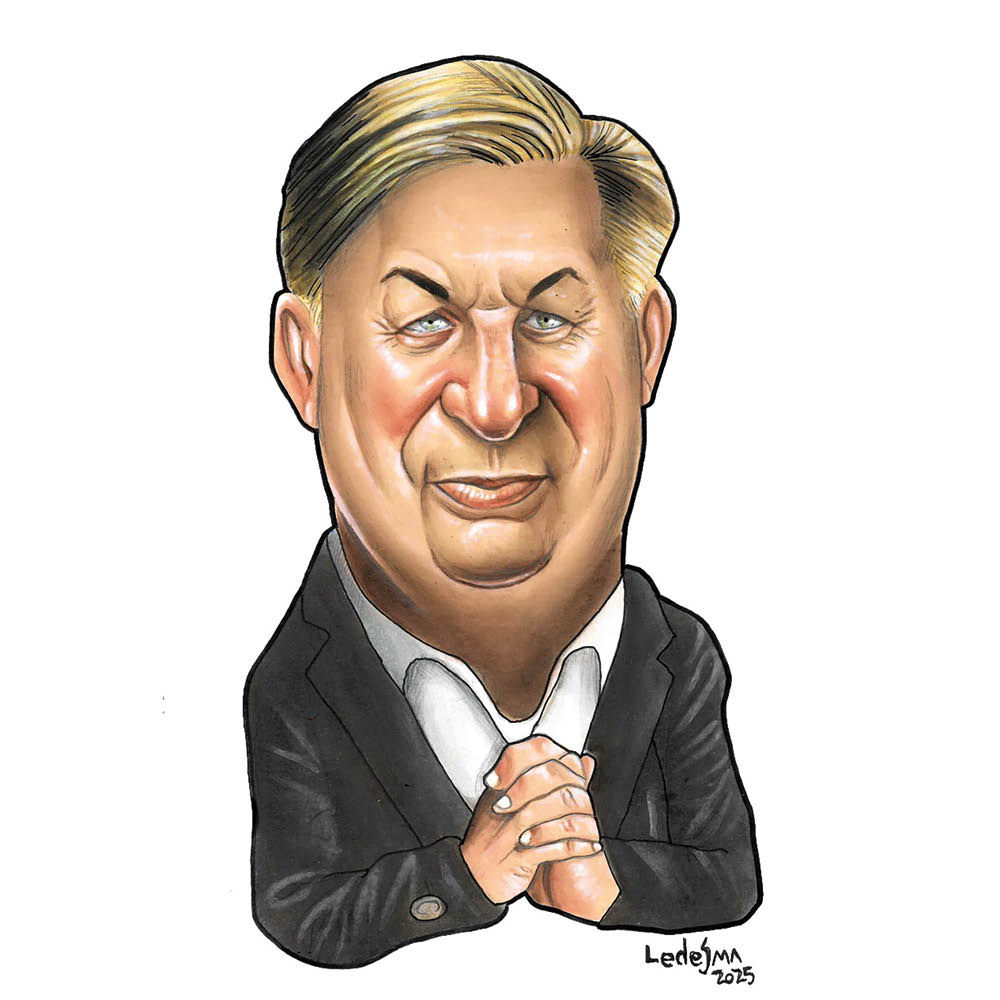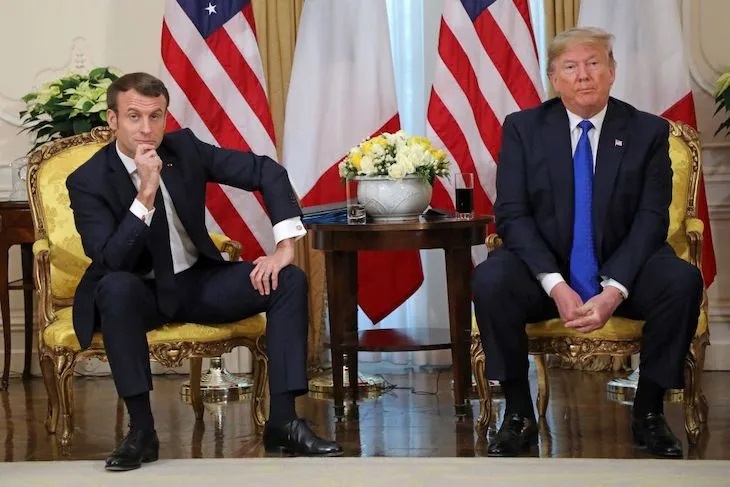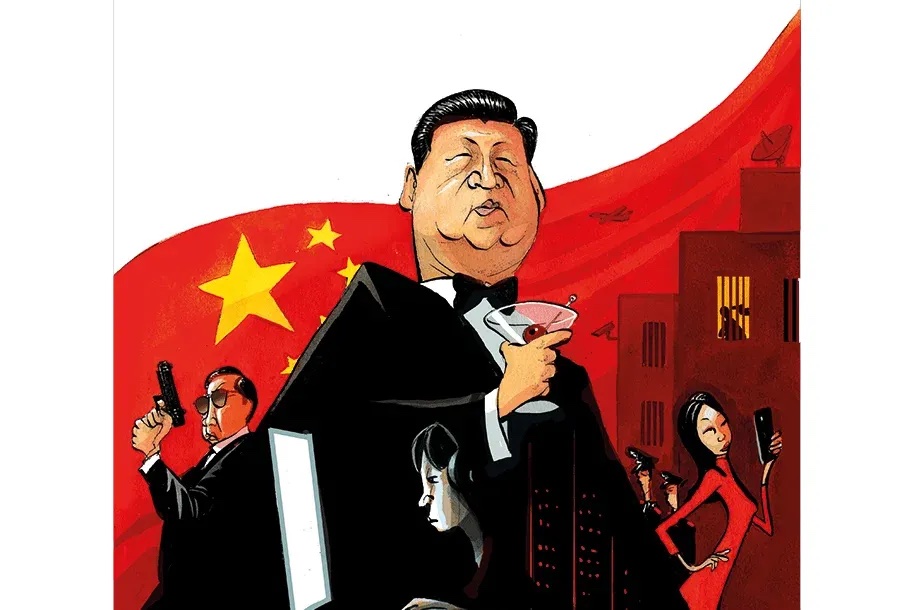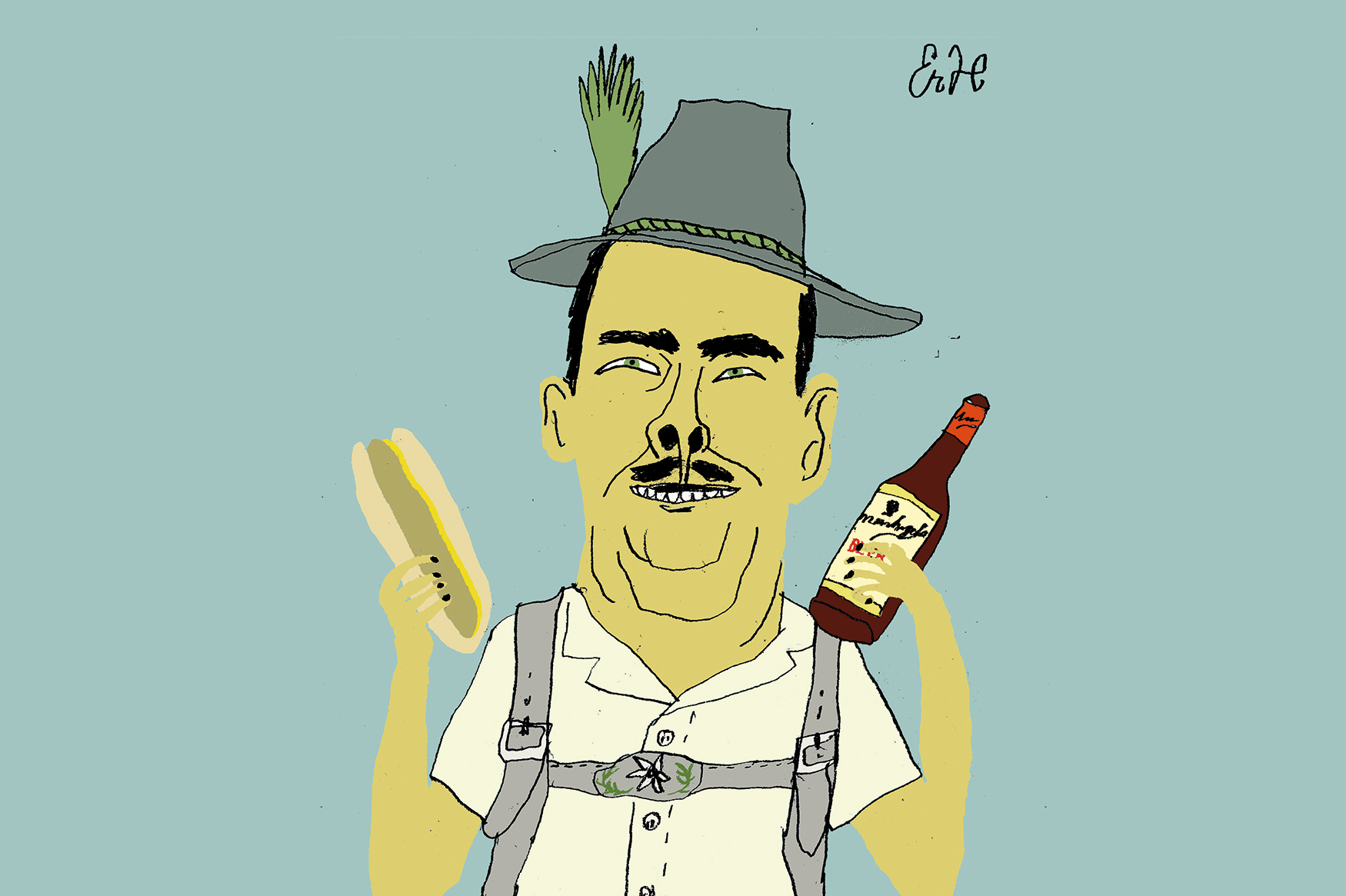“My knife is at your throat,” says a Turkish barber, wielding a razor blade around Maximilian Krah’s face. Krah, one of the most controversial figures in Germany’s right-wing Alternative für Deutschland (AfD) Party, sits for a shave — and a grilling. The TikTok video of the conversation has racked up 2.8 million views.
Does Krah hate foreigners, the bearded barber asks. No, but “8 million have come since 2013,” he says, and “too many don’t work and don’t want to work.” Does he hate Islam? Religion is good but “not as a reason to blow up people.”
This isn’t quite what you’d expect from a member of the AfD but Krah is not your typical politician. The forty-eight-year-old Catholic and father of eight, who is a member of the European Parliament and was once accused of employing a Chinese spy (he turned out also to be a German spy), is one of the party’s most controversial figures. He has also emerged as a central character in the AfD’s social media campaign. “I am the German Donald Trump,” he tells me when we speak on the phone. His online presence is anything but subtle.
The AfD has taken to social media because of the Brandmauer or “firewall,” which means that the other parties have until recently refused to work with it. The media, meanwhile, often exclude it, so the party’s decision to focus its efforts on social media has paid off. In last year’s European Parliament elections and the state elections in Saxony, Thuringia and Brandenburg, the AfD either won the under-twenty-five vote or came close.
Krah likes X because he believes it is where political trends begin, but he has found a bigger audience on TikTok. He only created a TikTok account because his assistant encouraged him to, but now he takes it seriously and has developed a formula. His videos are never more than a minute long. The tempo mounts, and each video starts and ends on a similar note so it can be played on a loop. He thinks that helps them to go viral. His target audience is young men. “For them, I might now be the most popular politician in Germany,” he says. “Men are realizing that the promises of the modern left-liberal world are not doing them any good. Men already realize that the life that is recommended and given to them is bad for them. It doesn’t make you happy, it doesn’t lead to success and it leads to alienation from your own self.”
His videos, he says, help men navigate modern life. His strategy is controversial because he engages with Andrew Tate and his brother Tristan. “I don’t want to show solidarity,” he says. “I want to talk to them. What is the message that makes them so successful?” Before Tate, he says, young men were encouraged to be beta males. “That was the only form of masculinity that was somehow still accepted and everything else was toxic masculinity. And the Tates’ whole message is that toxic masculinity is awesome. But no, I don’t intend to buy a Lamborghini and brag about what color it is.”
A recent survey of Germany’s young people found that they are worried about the economy, climate change and migration. Krah tries to offer them advice, rather than politics. He gives lessons on how to find a girlfriend or how to stand up for oneself.
He also tries to encourage young Germans to take pride in their history. That inevitably runs into the question of the Nazis, and he has been heavily criticized for this. His own family history is murky: his grandfather was a doctor who joined the Nazi Party in 1937, which Krah has claimed he wasn’t aware of. He also says that not everyone in the Waffen-SS was a criminal, citing the novelist Günter Grass, who admitted towards the end of his life that he’d been a member. For a German politician to make such a reference was dynamite and the AfD was thrown out of the Identity and Democracy grouping in the European Parliament. Krah seems sanguine: “We would have been kicked out anyway. I regret I was stupid enough to provide the excuse.”
It would be a mistake to see Krah as obsessed with the past. Though he supports the “remigration of many of those who have come here in the last ten or fifteen years,” he thinks the AfD needs to win over third-generation immigrants, appealing to their “many political, historical and cultural overlaps.” This position has upset some on the right. “I’m being excommunicated by the far right,” he says. “I think it’s wonderful.”
He’s inspired by Trump, who succeeded by winning over ethnic-minority men. In 2015, when Krah was a member of the center-right Christian Democrats (CDU), he predicted Trump would become president. Frie- drich Merz, now the leader of the CDU and the likely next chancellor, told Krah it would be Jeb Bush. “I knew at that moment Merz was a loser,” he says. Krah left the CDU that year over Angela Merkel’s decision to open the borders to a million refugees.
Krah thinks the firewall will fully collapse by “2026 or 2027.” He points to Austria, where attempts to keep the hard right out have failed. With the AfD projected to come second in the February election, the party will be too big to exclude. Having ruled out a deal with the AfD, Merz will probably have to form a coalition with the Social Democrats (SPD) or the Greens, or both, although some CDU politicians are talking about a coalition with the AfD. The route to that has been eased by Merz’s decision to accept AfD votes on anti-migration legislation, breaching the firewall for the first time.
Krah, meanwhile, seems happy speaking to young men on TikTok. A few days after our interview, he posted a new video telling his audience that they shouldn’t be “soy-boys.” Instead, they should “eat meat,” “go to the gym” and be like the legendary Germanic hero Siegfried the Dragon Slayer. If TikTok is the new campaign trail, Krah knows exactly what he is doing.
This article was originally published in The Spectator’s March 2025 World edition.























Leave a Reply